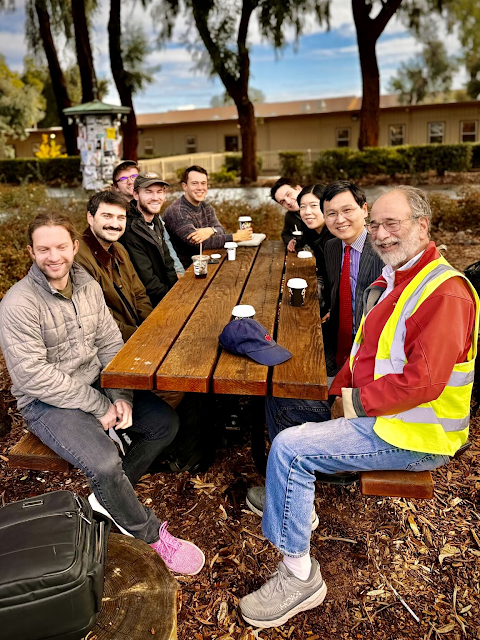India allows only unpaid blood donation, from altruistic donors or from "replacement donors" who are friends or relations of particular patients in need of blood (who must procure it before receiving it). There is a severe blood shortage, some of which is filled by black market "professional" blood donors, who are paid to pretend to be unpaid replacement donors.
Here's a story from the Indian news service Quint:
Out for Blood: Why Are Many Indians Forced To Seek 'Professional Blood Donors'? Although it is illegal, why is there a thriving market for paid blood donors in India? by ANOUSHKA RAJESH and MAAZ HASAN
"Donating blood in exchange for money was banned in India in 1996. However, paying 'professional blood donors' to meet this requirement is still fairly common.
...
"To see how easy it would be to 'arrange' a paid blood donor, FIT went to one of the busiest government hospitals in Delhi.
...
"All leads – from vendors to patient families and bootleg pharmacists – point us to Ashok (name changed). He sits, surrounded by 4-5 men, and is guarded when we make inquiries.
"He begins with the following line of questioning: 'Where is our patient admitted? What surgery do they need? Why couldn't we just get friends and relatives to donate?
"Posing as a patient's friend, the FIT reporter gives him preplanned answers. In the emergency ward. He had an accident and needs surgery on his leg. I donated blood a month ago. He has no family here, and everyone else we reached out to has refused.
"Only when he's satisfied with the answers, he says he would be able to 'arrange boys' by the next day, and that it would cost between Rs 3,500 to Rs 4,000.
...
"According to the Ministry of Health and Family Welfare, India's annual requirement for blood is around 1.5 crore units per year, while in reality, only around 1 crore units are available.
"This gap in supply and demand of blood poses a major public health crisis in the country. For example, around 70 percent of postpartum hemorrhage (PPH)-related deaths in India are due to lack of immediate availability of blood.
...
"The paid donors are generally young boys, between the ages of 20 and 25, from very poor backgrounds," says Dr Dubey. ""This will no doubt be detrimental to their health," he adds. Moreover, if caught, they face the risk of jail time.
"The protocol is to ask every donor a set of questions before we take their blood. "If they seem suspicious, we ask them questions like, 'how are you related to the patient?', 'what is the patient's name?', and 'what surgery are they having?', to sus them out. If we get enough proof, we either defer them, or hand them over to the cops," Dr Priyansha Gupta, PG resident, Public Health, who has worked in Delhi's AIIMS blood bank in the past.
"What, then, happens to the families who desperately need blood when their donors are deferred?
"Dr Dubey says they are referred to the social workers attached to the hospital to get them help.
...
"But you have to understand, blood is a scarce commodity, and there's only so much we have."
##########
Here's a story from the Hindustan Times (in 2022), which begins with some relevant background (before debunking myths that lead to a shortage of voluntary donors):
Common myths on blood shortage in India "The article is authored by Dr Parth Sharma, researcher, Ranita De, researcher in Lancet Citizen's Commission on Reimagining India’s Health System and Dr Vaikunth Ramesh."
"The shortage of blood products has been a major public health problem in India. It is estimated that nearly 12,000 people lose their lives every single day due to the lack of blood products. Supporting a population of 1.4 billion, the present blood transfusion service is fragmented with a little over 3,700 blood centres of which about 70% are located in eight states only. As of 2020, 63 districts in India do not have a blood centre. Space crunch and a burgeoning population have led to the establishment of health care facilities without blood centres on their premises, which in turn depend on nearby blood or storage centres for access to safe blood.
"Unfortunately, India has one of the largest shortages of blood supplies globally, while several diseases requiring blood transfusions are on the rise.
"A recent study by Joy Mammen, et. al. estimated the shortage to be around 2.5 donations per 1,000 eligible donors which equals a shortage of 1 million units. Blood products are required not only for surgeries but also for patients suffering from various medical conditions causing severe anaemia. At present, the source of donated blood is a combination of voluntary donors and replacement donors. Although professional donors are forbidden by law, they still continue to persist in our system under the guise of replacement donors. Voluntary non-remunerated donors, who donate based on altruism and a sense of doing greater good for the community, unfortunately, account for only 80% of the donors in India.
#######
HT: I was directed to the above links from the Indian posting
India Policy Watch #2: Regulating SoHO by Pranay Kotasthane, which was in part about the recent move in the EU to further restrict payment for Substances of Human Origin (SoHO), as discussed in







